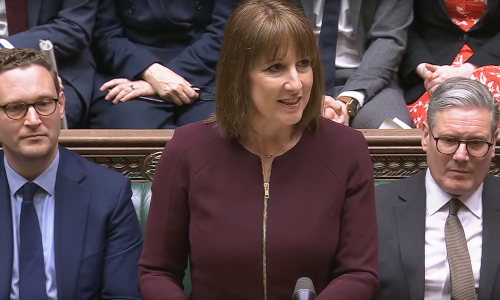Skills England has been launched in shadow form and will convene mayoral combined authorities and other key stakeholders to help identify regional and national training issues.
The education secretary Bridget Phillipson said the arm's length body will have a wide remit to boost skills and training in line with the new Labour Government's wider industrial strategy.

In a written statement to Parliament, she said: 'Skills England will help ensure we have the highly trained workforce needed to deliver the national, regional and local skills needs of the next decade, aligned with the Government's forthcoming Industrial Strategy. This effort will be central to enabling delivery of the Government's growth mission, filling skills gaps in key industries.'
Outlining its specific role, she noted it will convene employers, education and training providers, unions, experts, combined authorities and national government to:
- Develop a single picture of national skills needs, working with industry, other government departments (OGDs), the Migration Advisory Committee (MAC), unions and the Industrial Strategy Council to build and maintain a comprehensive assessment of current and future skills needs.
- Identify the priority areas for skills training, including the training for which the new Growth and Skills Levy will be accessible – in doing so, it will ensure that businesses are able to use their skills funding more flexibly and effectively, for which so many have been calling.
- Play a crucial role in ensuring that the national and regional skills systems are aligned in meeting skills needs, in constituencies the length and breadth of England.
The functions currently sitting with the Institute for Apprenticeships and Technical Education (IfATE) will transfer to Skills England, as part of the new organisation's broader remit.
IfATE will continue in the interim as the transition of functions to Skills England is finalised.
A permanent board, chair and CEO for Skills England will be appointed 'in due course'.
In a letter to stakeholders, seen by Highways, Jennifer Coupland chief executive of IfATE said: 'Our expectation is that IfATE staff will transfer with their responsibilities to Skills England and that the relationships you have forged with my officials will continue.'
She added: 'Together we have created skills maps, apprenticeships and qualifications, described the knowledge, skills and behaviours a learner needs to succeed in skilled careers and ensured training is comprehensive and meets latest industry requirements.
'These will form the building blocks of the new system. I am confident that with your support, the establishment of Skills England will simplify the skills landscape, supply the skills we need to grow our economy, and break down barriers to opportunity.'
While in opposition the Labour Party vowed to replace the failing Apprenticeship Levy with the new ‘Growth and Skills' Levy, allowing firms to use up to 50% of their contributions to fund training through routes other than apprenticeships.
A Highways investigation had previously revealed that two years into the apprenticeship levy, only around 13% of the funds have been claimed by contributors from the scheme as a whole.
A Freedom of Information request showed that by 2019 the Government had taken in £4.5bn from the controversial levy, which was introduced in April 2017, while only £601m has been paid out to employers for training purposes.
































